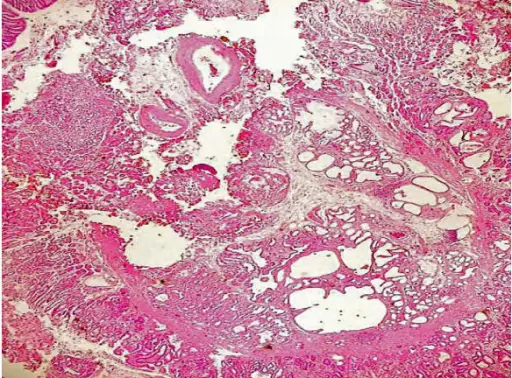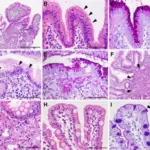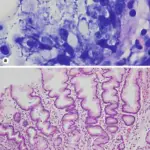Gastritis cystica is a rare pseudotumor of the stomach characterized by benign growths of deep gastric glands through the muscularis mucosae into the submucosa.
What is the Pathology of Gastritis Cystica?
The pathology of gastritis cystic is:
-Etiology: The cause of gastritis cystic is typically a weak immune system or major surgery.
-Genes involved: Targeted deletion of Kcne2.
-Pathogenesis: The sequence of events that lead to gastritis cystic are a rare disease characterized by polypoid hyperplasia of the gastric mucosa. It is a rare hyperplastic lesion with unclear pathogenesis.
-Histology: The histology associated with gastritis cystic shows gastritis cystica superficialis, in which cystic glands are limited to the mucosal layer and gastritis cystica profunda, in which there is cystic gland infiltration into the submucosal layer.
How does Gastritis Cystica Present?
Patients with gastritis cystic typically are male at older ages. The symptoms, features, and clinical findings associated with gastritis cystic include: epigastric pain and abdominal fullness, gastrointestinal bleeding and weight loss.
How is Gastritis Cystica Diagnosed?
Gastritis cystica is diagnosed by endoscopy.
How is Gastritis Cystica Treated?
Gastritis cystica is treated by antacids, protonix, surgical removal of the lesion
What is the Prognosis of Gastritis Cystica?
The prognosis of gastritis cystica is fair.



